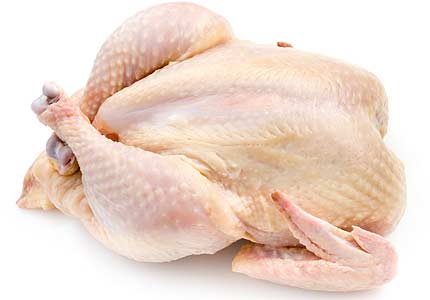
ZIMBABWEAN food outlets are selling Brazilian chicken imports preserved with embalming chemicals normally used to preserve human corpses, Parliament was told yesterday.
VENERANDA LANGA SENIOR PARLIAMENTARY REPORTER
Zimbabwe National Chamber of Commerce (ZNCC) deputy president Davison Norupiri made the claim when he appeared before the Portfolio Committee on Industry and Commerce chaired by Marondera Central MP Ray Kaukonde.
The committee had invited ZNCC and its president Hlanganiso Matangaidze to speak on the state of the local industry.
Norupiri said there was need to protect and promote local products as imports were forcing consumers to buy sub-standard products, some of which were preserved using unorthodox means.
“We have a lot of chickens coming into this country and they are sold in our supermarkets at very cheap prices compared to our local chickens,” he said.
“However, what people don’t know is that some of these chickens coming into this country from Brazil have undergone embalmment, which is used for dead bodies like at Doves (Funeral Services) in order to preserve them so that by the time they come into this country they are fresh.”
In a interview, Norupiri said embalming of chickens generated heated debate at the just-ended Zimtrade conference in Zambia last week. He said Comesa secretary-general Sindiso Ngwenya told delegates that chicken products mainly imported from Brazil were being embalmed to preserve them.
- Chamisa under fire over US$120K donation
- Mavhunga puts DeMbare into Chibuku quarterfinals
- Pension funds bet on Cabora Bassa oilfields
- Councils defy govt fire tender directive
Keep Reading
“Ngwenya highlighted during the conference that it was first discovered in Zambia and that they were now taking measures to curb the influx of those kinds of chickens,” he said.
“I don’t really know the name of the chemical that is used, but it is used mainly on gizzards and chicken livers and it is now difficult to know if it is not used in other parts of the chicken as well.”
Norupiri said local industry was failing to compete with smuggled goods as they were cheaper.
“Some products that are manufactured in this country are levied up to 55%, yet finished imported products that are landing in this country are charged a duty of only 10%,” he said.
“The policies are not friendly. We have warehouses of expired products and they are being sold at very cheap prices.
“We have smuggling even at commercial level and we need to make sure our borders are tight in terms of security to stop smuggling.”
ZNCC chairperson for the macroeconomic committee Brains Muchemwa said non-tariff barriers like strengthening of the supervisory role of the Standards Association of Zimbabwe (SAZ) should be created to curb the influx of sub-standard foods.
“For instance, if we don’t like genetically-modified organisms foods we can advocate for a situation whereby we strengthen the supervisory role of SAZ so that they ensure that our people have sound and proper goods and in order to protect our industry,” he said.
Zimtrade chief executive officer Priscilla Sithembile Philime told the committee that the country’s borders were so porous that some goods were being smuggled to appear as if they were coming from Sadc countries that Zimbabwe had trade agreements with.
“Our borders need policing because a lot of goods are coming in duty-free, in particular on the Sadc side where we have agreements, but goods are coming from other parts of the world and smuggled to appear as if they are coming from Sadc markets,” she said.










